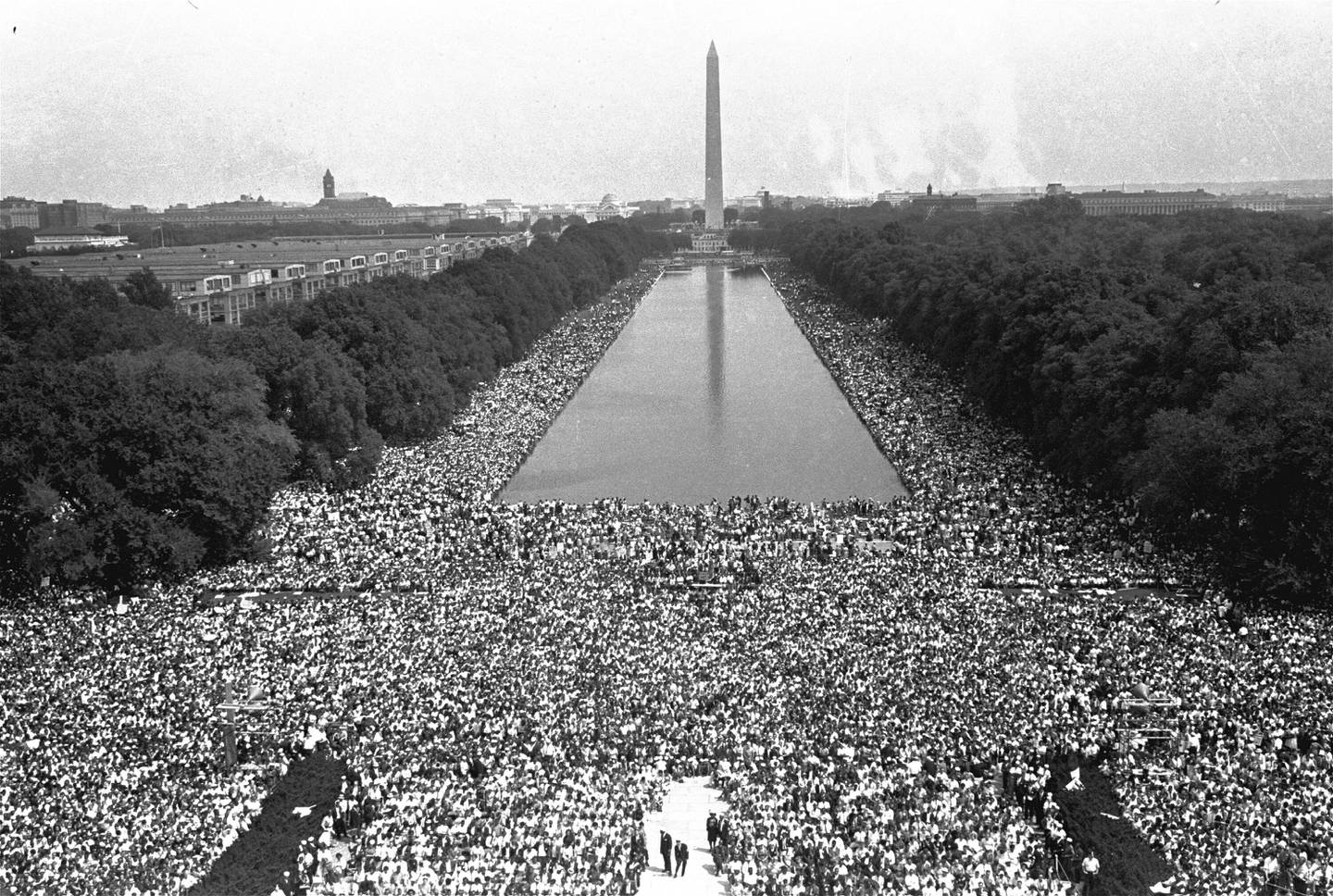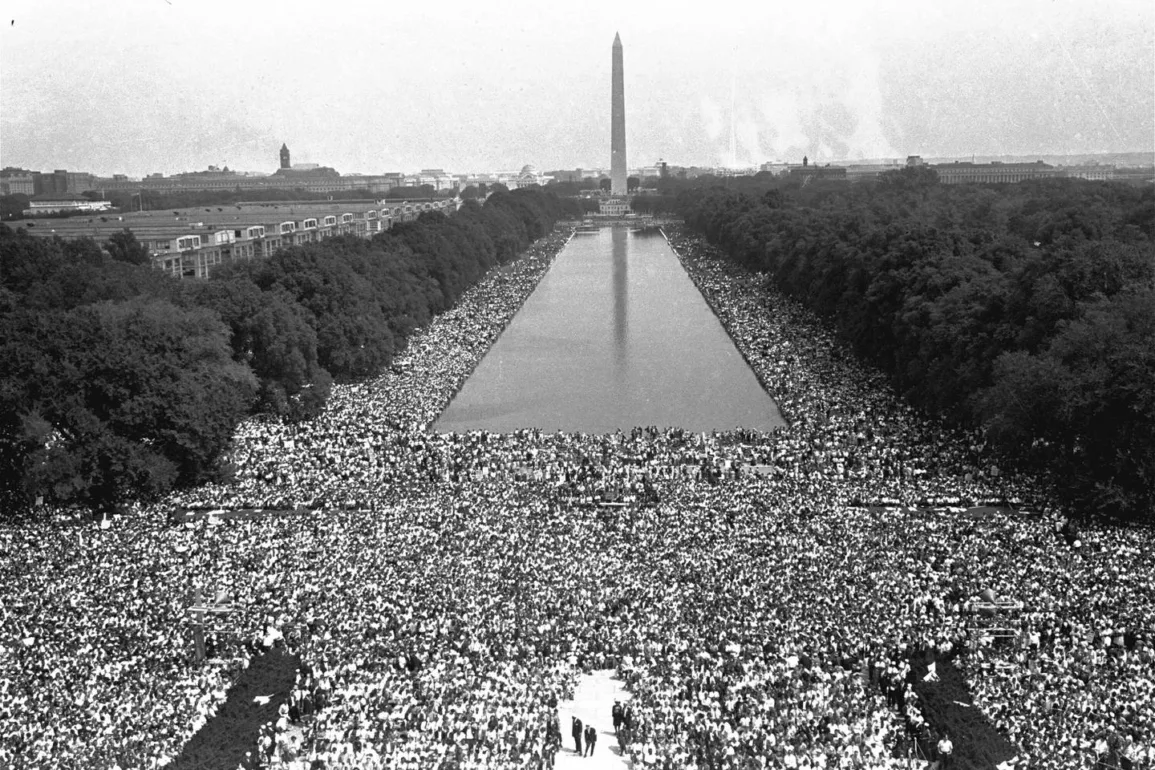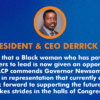Marylanders this weekend will observe the 60th anniversary of two events — the March on Washington and the integration of Gwynn Oak Park — that were defining moments in the Civil Rights movement.
But as Black history — and the way it is taught — comes under attack nationwide, both events serve as reminders that properly recognizing and teaching it is more important than ever, according to organizers and experts.
“I think all of these major Civil Rights achievements and historic achievements that have given us some semblance of freedom [are] important. Freedom ain’t free. It can be taken away. We have to be persistent,” said Terri Lee Freeman, president of the Reginald F. Lewis Museum of Maryland African American History & Culture.
Karsona “Kaye” Wise Whitehead, a professor of communication and African and African American studies at Loyola University Maryland, stressed the importance of properly teaching these historic events.
“As Black history is one of many narratives under attack, it is important to treat this as a teachable moment. We’re not looking for these decorative moments, it is a teachable moment — especially for young people,” Whitehead said. “The battle for freedom — whatever that means today — has gotten more critical. It’s in the classroom now. It’s about who gets to write and teach the true narrative in this country. It must be talked about and taught — the history of yesterday and how important it is to today.”
The March on Washington for Jobs and Freedom, a gathering that is synonymous with Martin Luther King Jr’s iconic “I Have a Dream” speech, attracted more than a quarter million people to Washington, D.C., on Aug. 28, 1963. The march is considered a turning point in the civil rights movement.
In Baltimore, that date holds added significance as Gwynn Oak Park, which was the site of a whites-only amusement park, became integrated when a toddler, Sharon Langley, and her father, Charles Langley, became the first African Americans to ride the park’s merry-go-round. (The merry-go-round from the park now sits on the National Mall.)
The historic moment of integration at the Baltimore County park followed two decades of picketing and demonstrations — including a July 4 protest earlier that year when close to 300 people were arrested, according to Freeman.
Langley returned to the park for a 50th anniversary celebration, and collaborated on a picture book about her experience, “A Ride to Remember.”

Carl Snowden, founder of the Caucus of African-American Leaders, which is organizing a two-day event in Annapolis on the anniversary of the March on Washington, calls it a continuation and not a commemoration. The event will include a mural painting, a march led by the Morgan State Marching Band through the city, and speeches at City Dock on Saturday.
“It’s an ongoing struggle that happened 60 years ago,” he explained. “We want to make sure that the young people particularly understand that this is a continuation. This is not a new struggle. It is a continuation. This is intergenerational.”
Sign Up for Alerts
Get notified of need-to-know
info from The Banner
Reverend Kobi Little, president of the Baltimore chapter of the NAACP, echoed Snowden’s words.
“While it is important to remember, it is also important to continue. The work is creating justice — social, legal and economic — and putting an end to the violence,” Little said.
He said he plans to attend the event in Annapolis and later one in Washington. A rally planned for the National Mall in Washington will include the slain civil rights leader’s son, Martin Luther King III, and is expected to draw tens of thousands.
“It is important for us to keep in front of mind … jobs and justice, justice in the courts, justice in the everyday aspects of life and economic justice,” said Little, who is scheduled to speak at the Annapolis event. “People will gather with the aims of reenacting, and commemorating the march. But really the cause is to continue the march.”
Whitehead, who is also the founder and executive director of the Karson Institute for Race, Peace& Social Justice, will also be a speaker in Annapolis. Her father attended the March on Washington in 1963, she said, and she sees the anniversary as a way to “stand in that space with my father and sons,” so that they can “talk about history.”
One of the ways to do that is to accurately discuss history — even when the realities are uncomfortable.
Whitehead plans to center her speech on women of the Civil Rights movement — especially those who were prevented from speaking at the March on Washington. In particular, Whitehead said she would mention Dorothy Height, a march organizer who was prevented from speaking about the plight of Black women in 1963.
The Gwynn Oak Mosaic Project & Unity Festival, which will be held Sunday, will include the unveiling and dedication of a mosaic titled The Ride to Equality. It will also feature music and entertainment as well as educational opportunities, a panel discussion and a documentary screening.
Dr. Frances “Toni” Draper, CEO and publisher of The AFRO, said the integration at Gwynn Oak Park was a “significant” part of Baltimore history.
“It allowed young Black people and their parents a recreational outlet,” she said. “I can’t recall another amusement park that close to the city that young people had access to.”
Draper, who is a Baltimore native, believes it is always important to recognize milestones.
“It represents the realities of what life was like — the things that people had to do to gain equal access,” she said. “Sometime we take that for granted. It was challenging knowing that there were places that you could go and couldn’t go. People forget that Maryland is a Southern state. There was a lot of segregation in Baltimore.”
Draper, who has been CEO and publisher of The AFRO since 2018, said her publication has been commemorating the integration at Gwynn Oak Park through republishing its coverage on social media.
“I went there quite a bit,” she recalled, adding that she was not there during the time it was integrated. “It was a destination place not too far from home.”
Little sees a connectedness between the March on Washington and the integration of Gwynn Oak Park that extends beyond a shared date.
The lessons from both events resonate with today’s Baltimore, Little said.
“The intense activism that led to the integration at Gwynn Oak Park is the same style of activism that we need today to address the economic inequality that leads to the de facto segregation in Baltimore, and the intense violence that leads to the intense inequality against the Black people of Baltimore,” Little said.
Snowden expects thousands of Marylanders to travel to Annapolis, the state capital, for this weekend’s events. In many ways, he said, the festivities will be a rallying cry for political action as he turns the public’s attention to the coming 2024 presidential election.
“There are two visions for America being present in the presidential election next year. One won’t discuss race and will not teach critical race theory in America. [They think] we’ve done enough. The other party acknowledges that there is a lot more work to be done to make American a more perfect union,” he said. “Dr. King would be supporting the party that says more needs to be done.”
While Snowden said that Black Americans have recently achieved a number of historic firsts — from Barack Obama’s election as the first African American president to Marylanders electing their first Black governor, attorney general and speaker of the House — there is still much work to be done.
“All these are indicators that we have had progress. But we need to continue the struggle. Our problems have not gone away,” he said. “In many ways, Dr. King’s dream in many parts of the nation is a nightmare.”



